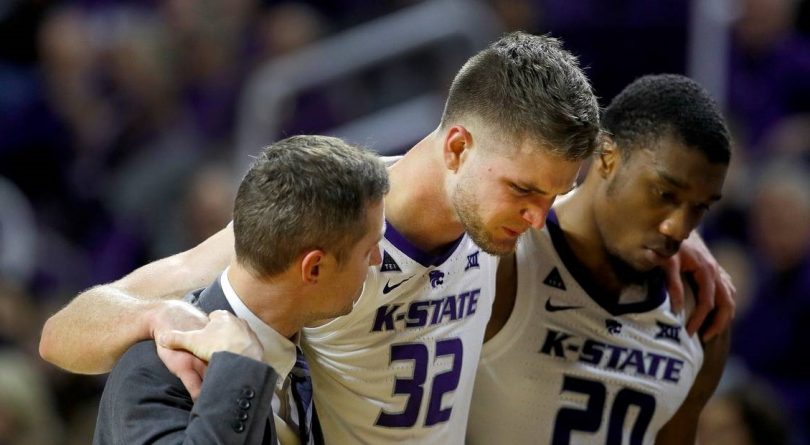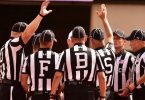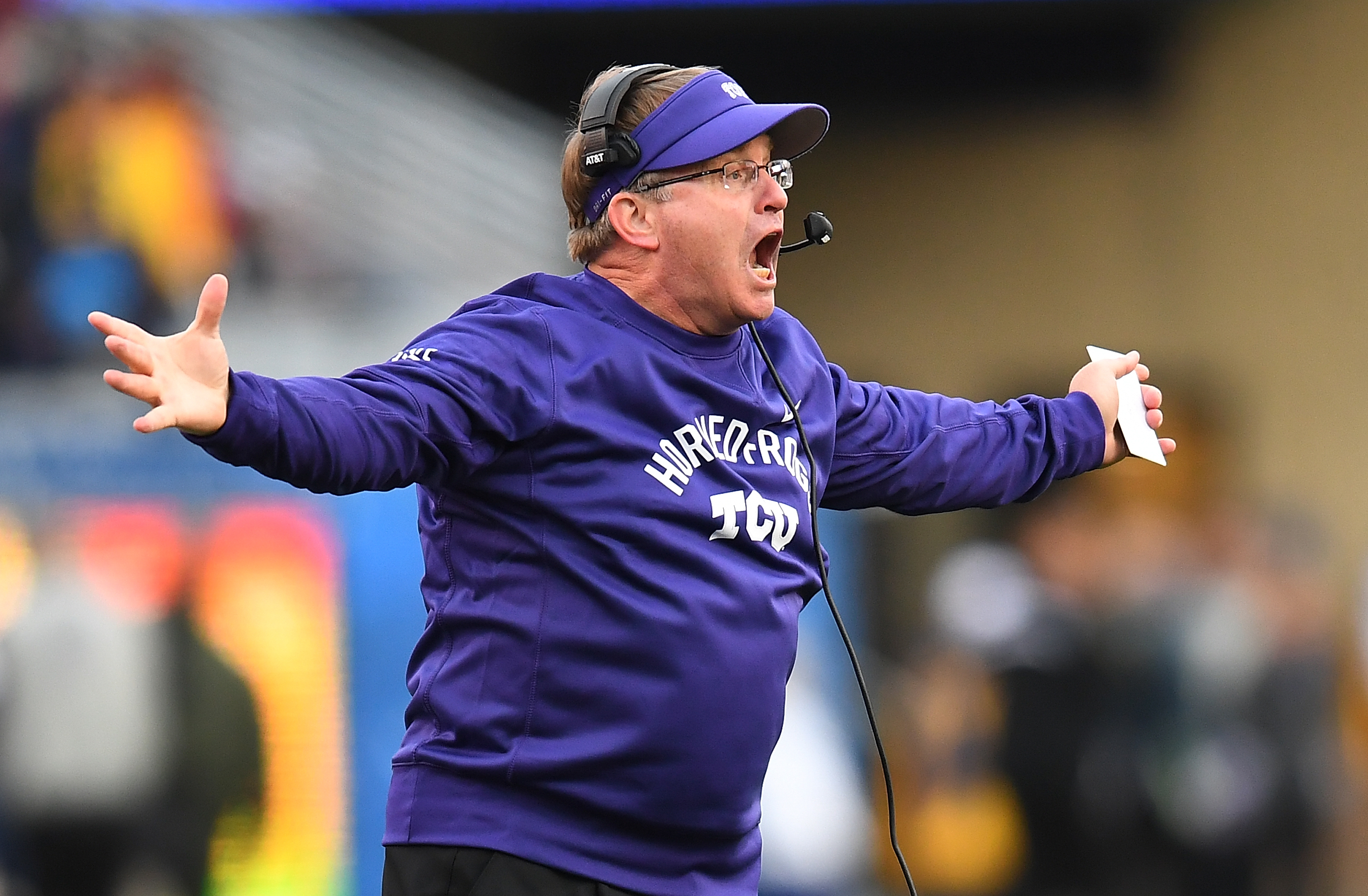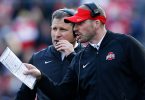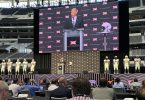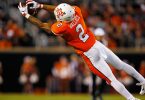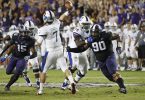Random and odd sports trivia fact: In each of the last two seasons, the Los Angeles Rams did not have any of their five starters on the offensive line miss a game due to injury. That’s 36 games and about 2,000 offensive plays of trench warfare without a significant owie.
So, dear reader, you’re wondering what the heck that info has to do with the local Power Five conference of interest? The answer: This Big 12 basketball season will be known for attrition being an equal opportunity destroyer of stability.
Whether injuries, suspensions or transfers, all 10 teams have had their rosters reconfigured as players have either been sidelined for periods of time or for the season.
If this is the most injury-plagued season in Big 12 history, perhaps it’s fitting that the team currently in first place overcame injuries to make an unexpected trip to the Elite Eight last season. Kansas State was missing two starters – Dean Wade and Kamau Stokes – but overcame those absences.
ESPN analyst Fran Fraschilla, the “voice” of the Big 12 who was deftly profiled by PressboxDFW’s Carlos Mendez, won’t say this is the biggest bite the injury bug has taken, but he’s well aware of the impact of the missing players.
“It’s an usual year because of the injuries and attrition,” Fraschilla said. “The Big 12 might not have the national impact like it did last season in the NCAA Tournament and it’s not as sexy because some of its top players are out, but it’s every bit as competitive. The injuries have taken their toll but it’s still hand-to-hand combat every night.”
Rarely is who’s not playing as important as who is playing. It requires the next 500 or so words to report on those missing in action.
Baylor: Sophomore forward Tristan Clark out for the season after suffering knee injury following two Big 12 games; senior guard Makai Mason missed first three games of the season and Saturday’s game with league-leading Kansas State; senior guard King McClure missed Saturday’s game with K-State and Monday’s game with Oklahoma.
Iowa State: The Cyclones played the first month without four players who combined for 84 starts and averaged 44.0 points per game last season. Preseason All-Big 12 selection Lindell Wigginton (foot), honorable mention preseason All-Big 12 pick Cameron Lard (violation of team rules), Solomon Young (groin) and Zoran Talley Jr. (violation of team rules) missed most of the non-conference schedule. Young played four games but then decided to take a medical redshirt.
Kansas: Junior center Udoka Azubuike suffered a broken wrist in early January and is out for the season. Earlier he had missed four games with an ankle sprain; sophomore Silvio DeSousa has been suspended by the NCAA; senior guard Lagerald Vick is on a leave of absence for personal reasons.
Kansas State: Senior Dean Wade, the Big 12 preseason player of the year, missed six games from Dec. 19 to Jan. 9 with a foot injury. Sophomore guard Cartier Diarra, a top reserve, is out indefinitely after surgery for a hand injury.
Oklahoma State: In mid-January, dismissed redshirt sophomore guard Michael Weathers and freshmen forwards Maurice Calloo and Kentrevious Jones for a violation of team rules. A week prior to those dismissals, the Cowboys released grad transfer point guard Mike Cunningham. The Cowboys’ roster now has just eight scholarship players.
TCU: Jaylen Fisher, the highest-ranked recruit in school history, announced in mid-January he was transferring. He was limited by injuries in his two-and-a-half seasons with the Frogs. Also, Yuat Alok, Kaden Archie and Angus McWilliam are transferring.
Texas Tech: Four-star recruit Khavon Moore, a 6-foot-7 forward, has been out most of the season recovering from a broken leg. He’ll seek a medical redshirt.
West Virginia: Junior center Sagaba Konate, a first-team preseason Big 12 selection, has played in just eight games and has been sidelined with a knee injury since early December. Junior guard James Bolden, the team’s leading scorer and most-experienced backcourt player, has missed the last five games with an ankle injury. This week, WVU announced forwards Wesley Harris (junior) and Esa Ahmad (senior) have been dismissed from the program “for a violation of athletic department policies.”
Oklahoma and Texas have avoided major injuries. The Longhorns’ Jericho Sims missed two games in January with an ankle injury. The Sooners’ Jamuni McNeace suffered an ankle injury in early December that kept him out of two games. However, he’s never fully recovered and has played limited minutes. He’s been sidelined the last two games and is not expected to play against TCU Saturday.
What has that good health done for OU and UT? The Sooners are 15-10 overall but are 3-9 in the Big 12 with a five-game conference losing streak. The Longhorns are maddeningly inconsistent; they’re 14-11 and 6-6 in the league.
Kansas State coach Bruce Weber texted Baylor’s Scott Drews to offer his sympathies for Clark’s season-ending injury.
“You know it and no one cares,” Weber said. “Fans don’t care, media doesn’t care. You’re supposed to go play. And when it’s your best player — these are the elite guys in our league that are out. It’s not good for our league, obviously, it’s not good for them and the teams.
“You can’t do anything about it. Injuries are part of it. Obviously, this year it seems like an epidemic in our league.”
Big 12 teams might like to think they’re in a league of their own. Fraschilla references one of Tom Hanks’ most memorable roles to explain the injury epidemic.
“There’s no crying in baseball and there’s no crying in the Big 12,” he said. “There’s a strong possibility Texas Tech would have won or tied for the title if not for three key injuries. Part of college basketball is overcoming adversity. Everybody has it at some point. There’s no sympathy.
“You want to see the league at full strength but what makes the Big 12 so good is how the coaches adjust. They’re problem solvers. We’ve seen more of that in the Big 12 than usual. But it looks like 70 percent of the Big 12 will make the NCAA Tournament.”
That could make for another successful season. But rosters not at full strength will likely be a reason to remember John Greenleaf Whittier’s quote. “For all sad words of tongue and pen, the saddest are these, ‘It might have been.’”

